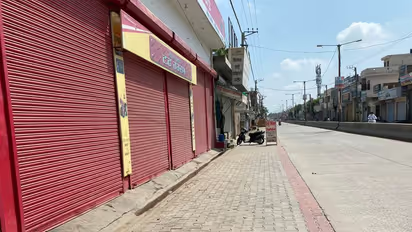Bharat Bandh 2024: Know what is open and what's closed on August 21; deets inside

Synopsis
The Bharat Bandh is aimed at challenging this decision and demanding its reversal. The protest is expected to be supported by various social and political organizations who view the ruling as unjust.
The Reservation Bachao Sangharsh Samiti has called for a nationwide Bharat Bandh on Wednesday (August 21) in protest against the Supreme Court's recent ruling on SC/ST reservations. The bandh has garnered support from SC/ST groups in Rajasthan and across the country.
Why Bharat Bandh is called?
The Supreme Court's ruling, which permits states to create sub-categories within the SC and ST groups, has sparked controversy. The Court stated that "those who really need it should get priority in reservation," a decision seen by many as unfair and detrimental to the interests of SC/ST communities.
Kolkata rape-murder case: SC sets up National Task Force to safeguard doctors – Who are in it?
The Bharat Bandh is aimed at challenging this decision and demanding its reversal. The protest is expected to be supported by various social and political organizations who view the ruling as unjust.
Security measures:
In response to the anticipated unrest, police have been instructed to heighten security across all districts. DGP UR Sahoo has stressed the importance of maintaining law and order, saying, "We have asked our officials to organize meetings with groups calling for the bandh, as well as with market associations, to facilitate better cooperation."
A video conference involving divisional commissioners, district magistrates, and senior police officers has been held to ensure readiness. Special attention is being given to Western Uttar Pradesh, a region considered particularly sensitive, with increased police vigilance.
What's open?
Emergency services: Ambulances and other emergency medical services will remain operational throughout the bandh.
Essential services: Services critical to public health and safety, including hospitals and fire departments, will continue to function.
What's closed?
Public transport: Expect significant disruptions in public transportation services, including buses and trains.
Private offices and businesses: Many private offices and businesses may be closed or operate with reduced staff.
Non-essential services: Routine and non-essential services are likely to be suspended or experience delays.
Stay updated with the Breaking News Today and Latest News from across India and around the world. Get real-time updates, in-depth analysis, and comprehensive coverage of India News, World News, Indian Defence News, Kerala News, and Karnataka News. From politics to current affairs, follow every major story as it unfolds. Get real-time updates from IMD on major cities weather forecasts, including Rain alerts, Cyclone warnings, and temperature trends. Download the Asianet News Official App from the Android Play Store and iPhone App Store for accurate and timely news updates anytime, anywhere.